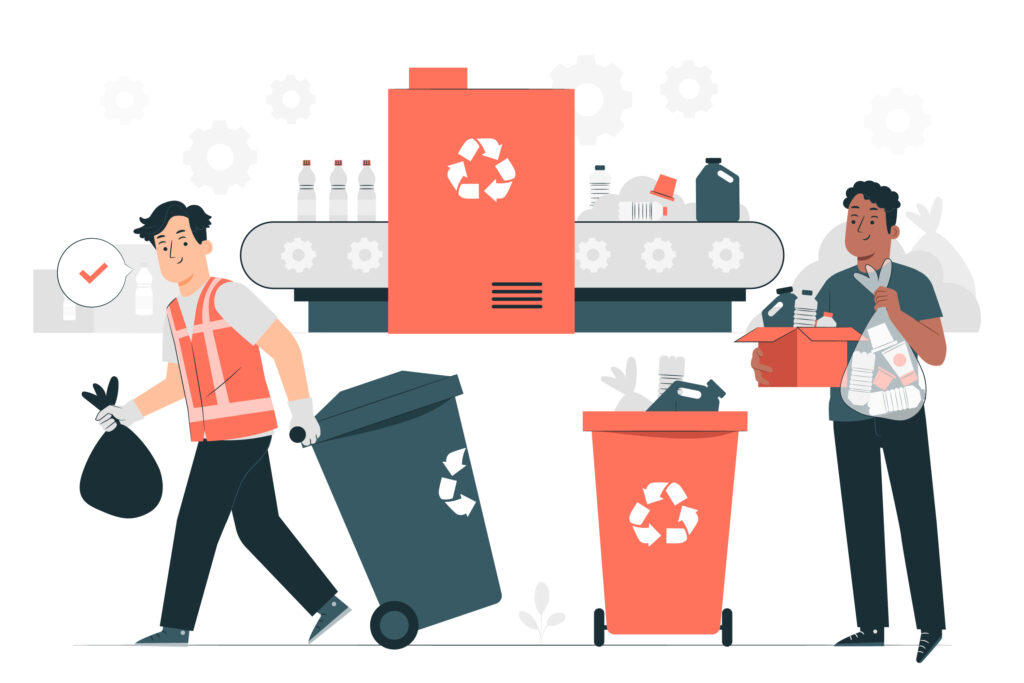- Understand the importance of efficient waste management for environmental sustainability.
- Discover different waste management techniques and their benefits.
- Learn practical tips for reducing waste at home and in the community.
Table of Contents
Introduction to Waste Management
Waste management is crucial to keeping an ecosystem clean and healthy. As populations grow and urban areas expand, the waste generated increases exponentially. To handle the growing waste, we must implement effective strategies that mitigate harmful environmental and human health effects. Leveraging services such as dumpster rentals can significantly streamline waste management efforts for both residential and commercial needs. This article delves into innovative strategies for efficient waste disposal and how they contribute to a cleaner future.
Importance of Efficient Waste Management
Proper waste management is crucial for several reasons. It reduces pollution, conserves natural resources, and prevents the spread of diseases. Communities risk increased air, water, and soil contamination without an efficient waste disposal system. Additionally, efficient waste management processes like utilizing roll off dumpster rentals are significant in global efforts to combat climate change. The Environmental Protection Agency has extensive resources on the benefits of sustainable food management, illustrating the broader impact of reducing waste. When we manage waste diligently, we also pave the way for future generations to enjoy a cleaner, healthier planet.
Reducing Waste at Home and in the Community
Both individuals and communities can greatly aid the reduction of trash. Simple actions like composting kitchen scraps, recycling household items, and reducing single-use plastics can collectively make a big impact. Reusable shopping bags, water bottles, and containers can significantly reduce daily waste. Community initiatives such as organized clean-up events and educational programs can further promote sustainable practices. These local ef orts foster a sense of responsibility and community spirit, encouraging more people to participate in waste-reduction activities. According to an article, innovative municipal policies have encouraged recycling and waste reduction. Municipal cities that introduce financial incentives for recycling often see improved participation rates, further contributing to overall waste reduction efforts.
The Role of Technology in Modern Waste Management
Technological advancements are transforming waste management processes, making them more efficient and less labor-intensive. Sensor-equipped smart garbage receptacles can optimize collection routes, cutting emissions and fuel use by guaranteeing that waste is collected only when the bins are full. This reduces unnecessary trips and maximizes the efficiency of waste collection services. Advanced recycling facilities use robot CS and AI to sort materials more accurately and quickly, ensuring higher material recovery and purity rates. Additionally, waste-to-energy technologies are turning non-recyclable waste into valuable resources. These innovations hold great promise for making waste management more effective and sustainable.
Conclusion
Innovative waste management strategies are vital for achieving a cleaner and more sustainable future. By adopting efficient waste disposal techniques and leveraging technology, we can significantly reduce environmental impact and enhance the quality of life for communities worldwide. Everyone, from individuals to large organizations, has a part to play in this endeavor. Small changes in daily habits and large-scale technological innovations can make a substantial difference. Together, we can make a positive difference for the planet, ensuring that future generations inherit a cleaner and healthier world.
